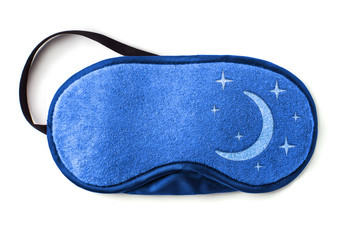
According to the Center for Disease Control, about 70 million Americans suffer from sleep difficulties, with less than half of adult Americans getting the recommended 7-9 hours a night of sleep. Sleep disturbances can lead to daytime sleepiness and impaired daytime cognitive performance as well as increase the risk for cardiovascular diseases including high blood pressure, heart attack, and stroke.
Several behavioral interventions are shown to have some efficacy in improving sleep quality, yet little is known about their relative effectiveness. Kirk et al. [Journal of Cognitive Enhancement] tested the relative efficacy of three different pre-sleep interventions compared to a no-treatment control on sleep outcomes.
Healthy Danish participants (N=38; average age = 28 years; 53% male) completed a cross-over study to assess the effects of three pre-sleep interventions. All participants received all three interventions after an initial one-week baseline period that served as a control condition.
Each intervention lasted one week, with a one-week washout period between each intervention trial. Participants received treatments in a randomized order to counterbalance any order effects.
Participants wore a chest-strapped heart rate monitor to measure heart rate variability and a wrist-worn actigraph. Participants slept wearing this equipment nightly during the baseline period and during the intervention periods to measure parasympathetic activity, sleep time and sleep efficiency.
All three interventions were app-based on a smartphone and listened to for 15-45 minutes at bedtime. Interventions compared were restful instrumental music, sleepcasts (narrative tours of dreamy landscapes), guided mindfulness meditation, and the baseline control period where they slept as normal without an intervention. Mindfulness exercises involved non-judgmental present-moment experiencing of body, breath, and mind.
Participants completed daily sleep diaries as well as self-report sleep and stress questionnaires and a computerized sustained attention task at baseline and post-intervention.
The results showed that only the mindfulness app condition resulted in improved self-report sleep quality (partial η2 = 0.25), lower perceived stress (η2 =0.27) and improved sustained attention on the computerized task (η2 = 0.21). All three treatments showed improved actigraph-measured sleep efficiency compared to the control condition (η2p = 0.71), but sleep efficiency was highest for the mindfulness group (η2 = 0.08).
All three interventions increased heat rate variability during the pre-sleep period compared to the control period (η2 = 0.25), but only the mindfulness group showed higher heart rate variability while asleep (η2 = 0.32).
The study shows an app-delivered guided mindfulness meditation intervention is more effective than two other active pre-sleep interventions in improving perceived subjective sleep quality and objective sleep efficiency in healthy participants. Mindfulness was also most effective in reducing perceived stress and overnight physiological arousal, and improving daytime sustained attention.
Reference:
Kirk, U., Ngnoumen, C., Clausel, A., & Purvis, C. K. (2021). Using Actigraphy and Heart Rate Variability (HRV) to Assess Sleep Quality and Sleep Arousal of Three App-Based Interventions: Sleep Music, Sleepcasts, and Guided Mindfulness. Journal of Cognitive Enhancement.
Link to study